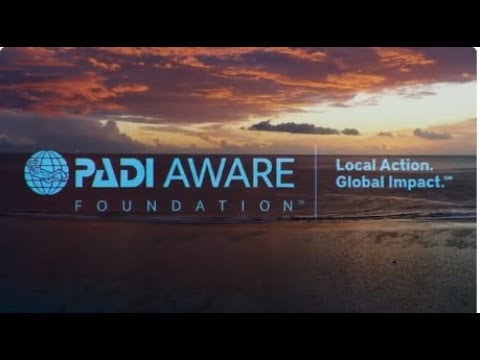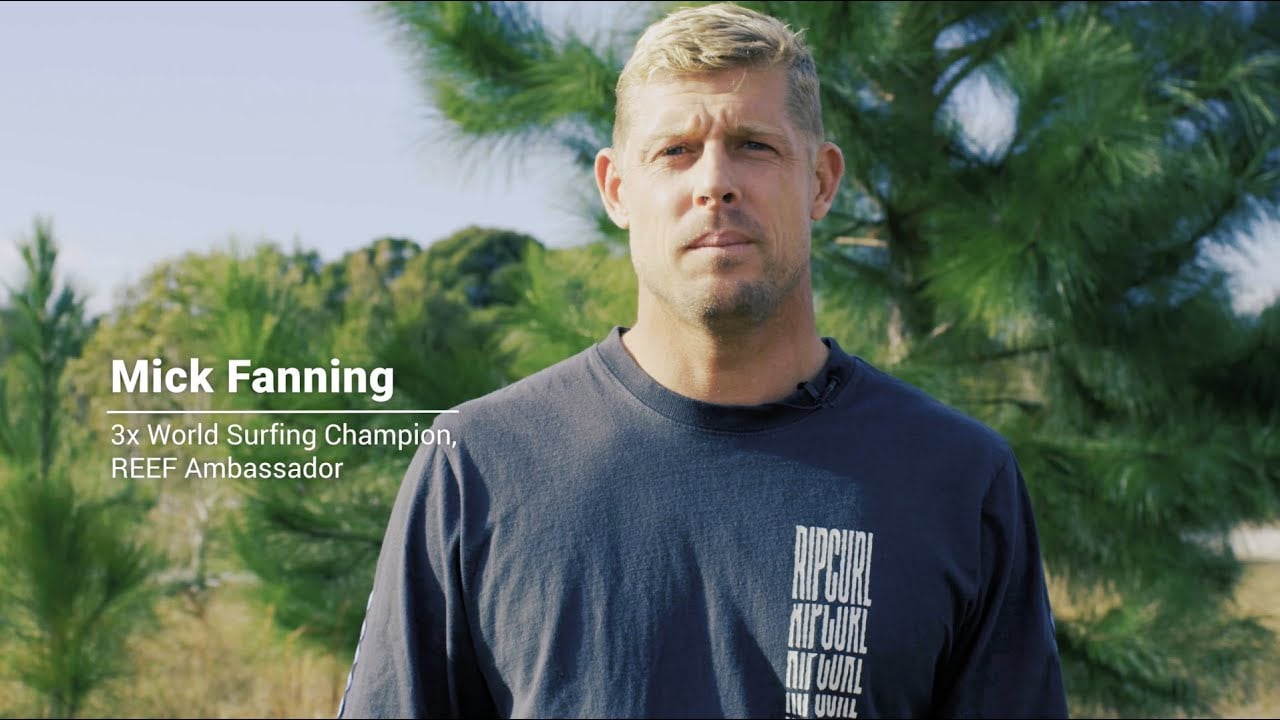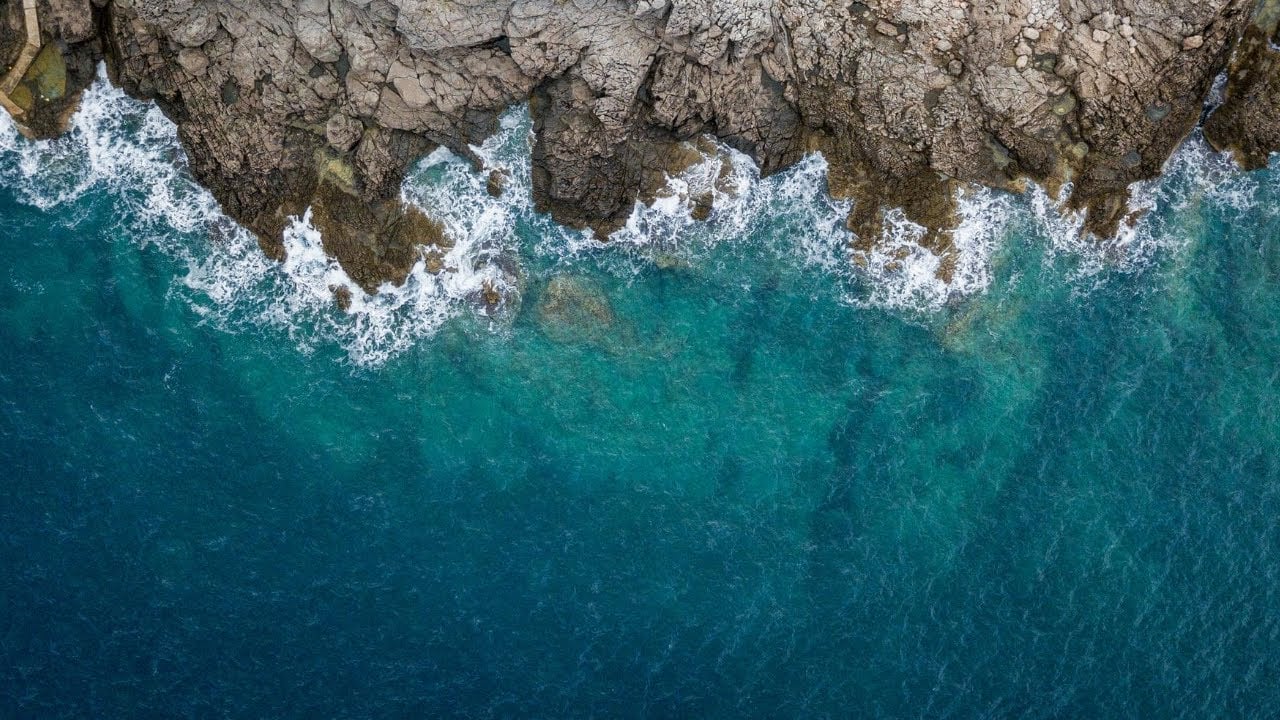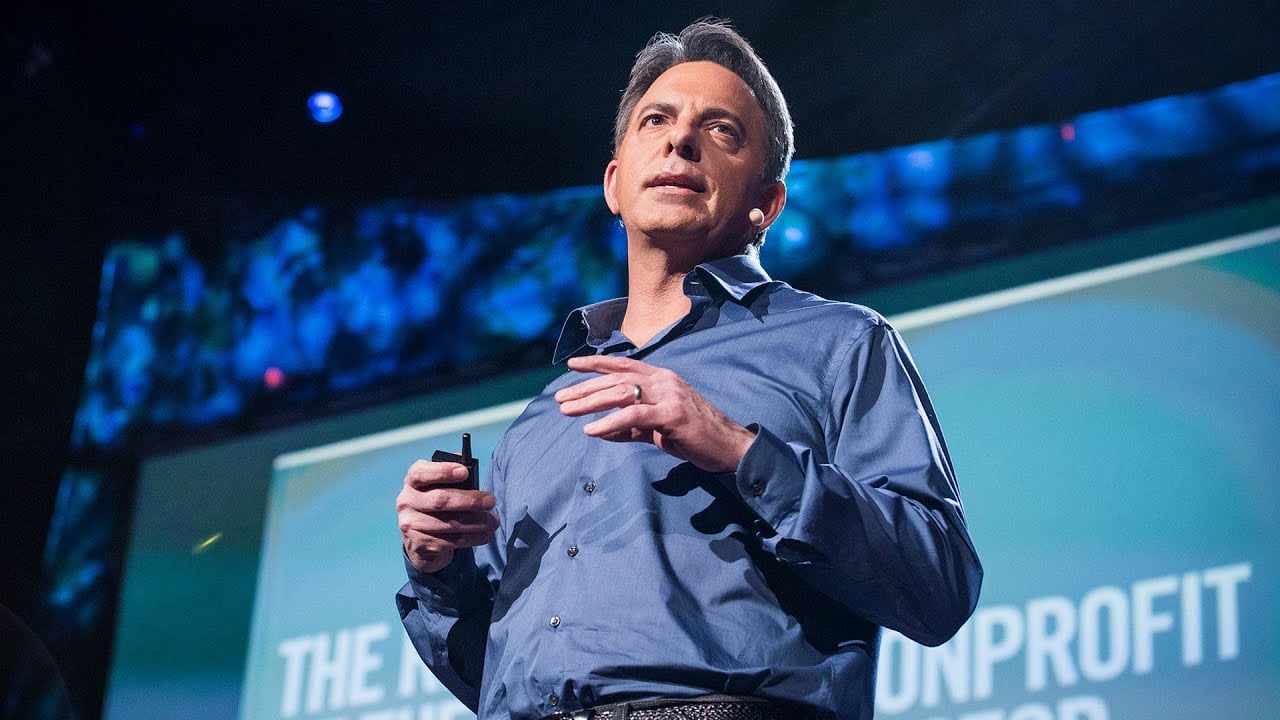9 Best Charities That Help Clean Up Our Oceans (Complete 2025 List)
Affiliate Disclosure
Hey fellow impactful ninja ?
You may have noticed that Impactful Ninja is all about providing helpful information to make a positive impact on the world and society. And that we love to link back to where we found all the information for each of our posts.
Most of these links are informational-based for you to check out their primary sources with one click.
But some of these links are so-called "affiliate links" to products that we recommend.
Why do we add these product links?
First and foremost, because we believe that they add value to you. For example, when we wrote a post about the environmental impact of long showers, we came across an EPA recommendation to use WaterSense showerheads. So we linked to where you can find them. Or, for many of our posts, we also link to our favorite books on that topic so that you can get a much more holistic overview than one single blog post could provide.
And when there is an affiliate program for these products, we sign up for it. For example, as Amazon Associates, we earn from qualifying purchases.
What do these affiliate links mean for you?
First, and most importantly, we still only recommend products that we believe add value for you.
When you buy something through one of our affiliate links, we may earn a small commission - but at no additional costs to you.
And when you buy something through a link that is not an affiliate link, we won’t receive any commission but we’ll still be happy to have helped you.
What do these affiliate links mean for us?
When we find products that we believe add value to you and the seller has an affiliate program, we sign up for it.
When you buy something through one of our affiliate links, we may earn a small commission (at no extra costs to you).
And at this point in time, all money is reinvested in sharing the most helpful content with you. This includes all operating costs for running this site and the content creation itself.
What does this mean for me personally?
You may have noticed by the way Impactful Ninja is operated that money is not the driving factor behind it. It is a passion project of mine and I love to share helpful information with you to make a positive impact on the world and society. However, it's a project in that I invest a lot of time and also quite some money.
Eventually, my dream is to one day turn this passion project into my full-time job and provide even more helpful information. But that's still a long time to go.
Stay impactful,
There are around 5.25 trillion pieces of plastic in our oceans, with 100 million marine animals dying from plastic pollution every year. 80% of global marine pollution comes from untreated sewage, agriculture runoff, and discarded pesticides, which has caused 50 marine dead zones around the world. Fortunately, charities are fighting to save the oceans that sustain all life on Earth. So, we had to ask: What are the best charities that help clean up our oceans?
The best charities that help clean up our oceans are Ocean Conservancy and The Ocean Cleanup. Other charities such as the Coral Reef Alliance and The 5 Gyres Institute also conduct research to advocate for better policies that protect and clean up our oceans.
Whether you want to reduce the use of harmful single-use plastics, advocate for better policies to protect our oceans, or advance clean energy solutions for the health of all marine species, there is a charity for you. Keep reading to learn more about what the best charities that help clean up our oceans are all about, how they work, and what your best way would be to make a contribution.
Here’s What All the Best Charities That Help Clean Up Our Oceans Have in Common
The charities on this list were chosen based on their mission, impact and transparency ratings, and achievements.
They operate all over the world, from North America to the Antarctic, working tirelessly to clean up our oceans.
Many of these charities focus their efforts on physically removing trash from coastlines and oceans. Others focus their attention on educating the public on the dangers of ocean pollution and advocating for better policies to prevent further damage.
Yet, they all share the same goal; to preserve the health of our oceans.
These Are the 9 Best Charities That Help Clean Up Our Oceans in 2025
Below are our favorite charities that help clean up our oceans (you can click on their link to directly jump to their section in this article):
Best Charities That Help Clean Up Our Oceans
(At the end of this article we’ll also share our six-step approach on how you can select the best charity to support.)
Ocean Conservancy: For the Love of the Ocean
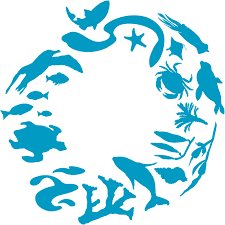
🔎
Their transparency & ratings:
Ocean Conservancy holds a 4-star rating from Charity Navigator and the Gold Seal of Transparency from GuideStar.
“Working with you to protect the ocean from today’s greatest global challenges.”
Ocean Conservancy
⚒️
What they do:
Ocean Conservancy, in collaboration with other volunteer organizations, encourages people to remove trash from local beaches and waterways through their International Coastal Cleanup and International Trash Trap Network. These efforts are facilitated through their innovative Clean Swell app, where participants can record the trash they pick up. Moreover, the charity campaigns for governments to advance clean energy solutions and reduce plastic waste by calling for more transparency in industries and investing in circular economies. Furthermore, they have produced a comprehensive guide on the prevention and cleanup of oil spills to save Arctic waters from excessive damage.
🚀
What they’ve achieved:
To date, Ocean Conservancy has removed 348.9 million lbs of trash from our oceans through their 17,000 volunteers. For example, in 2020, the charity became the first national ocean partner for a Superbowl, which resulted in the elimination of 2.7 million single-use plastic cups (replaced with sustainable aluminum cups). They were also integral to the passing of the Save Our Seas Act 2.0, which allocates funds to support marine debris prevention. Furthermore, in 2023, they recycled over 70 tons of end-of-life fishing gear collected from Ensenada, Mexico, to prevent it from ending up in the ocean.
✨
Ways to contribute:
You can donate directly to Ocean Conservancy through their website. You can also support the charity by signing one of their petitions to save marine wildlife.
The Ocean Cleanup: The Largest Cleanup in History
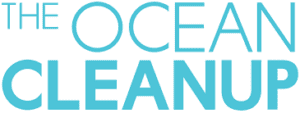
🔎
Their transparency & ratings:
According to their financial report, The Ocean Cleanup spent 75.7% of their expenditure on operational costs and 17.6% on human resources.
“Developing and scaling technologies to rid the world’s oceans of plastic. Our aim is to put ourselves out of business once the oceans are clean.”
The Ocean Cleanup
⚒️
What they do:
The Ocean Cleanup is working to end the pollution crisis in our oceans by creating artificial coastlines, using a floating system that consists of a U-shaped barrier to guide plastic into a retention zone. With the help of computer modeling, they predict plastic hotspots and place their cleanup systems in those areas for maximum capture. They are then able to track their progress through an online dashboard. Moreover, their high-tech Interceptor systems use solar-powered electronics and smart processing to remove waste from rivers across Indonesia, Malaysia, Vietnam, the Dominican Republic, California, and Thailand.
🚀
What they’ve achieved:
Since their founding, The Ocean Cleanup has removed over 19 million lbs of trash from oceans and rivers through the use of 12 Interceptor systems. Furthermore, their new System 03 is nearly 3 times larger than their previous cleanup systems, capable of clearing an area the size of a football field every 5 seconds, marking a huge leap forward in their mission to reduce plastic from oceans and rivers. For example, in 2021, they collected 1,806 lbs of trash through 4 Interceptor deployments and established 203 sampling stations.
✨
Ways to contribute:
You can donate directly to The Ocean Cleanup through their website. You can also support the charity by fundraising or becoming a Citizen Scientist.
PADI AWARE Foundation: Local Action. Global Impact.
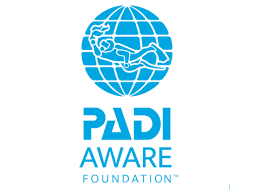
🔎
Their transparency & ratings:
The PADI AWARE Foundation holds a 4-star rating from Charity Navigator and the Bronze Seal of Transparency from GuideStar.
“To address the key threats facing the marine environment.”
PADI AWARE Foundation
⚒️
What they do:
The PADI AWARE Foundation engages the public to remove plastics and other debris from oceans through their Dive Against Debris Program. Volunteers can even see their impact via the charity’s innovative Dive Against Debris Global Map. Furthermore, they conduct marine scientific studies to support the development of the Plastic Treaty. They also focus their efforts on creating a sustainable diving industry by educating divers on how to live an ocean-conscious lifestyle and encouraging business owners to adopt sustainable practices.
🚀
What they’ve achieved:
To date, the PADI AWARE Foundation has removed more than 2 million pieces of debris from our oceans, with the help of their 128,000 professional diving members. The charity has also provided critical resources to over 50 community projects across 17 countries, from coral reef restoration to climate change mitigation and plastic pollution. For example, by 2022, they had successfully reduced marine debris by 50% in targeted countries and reduced the number of sharks and rays threatened with extinction by 25%.
✨
Ways to contribute:
You can donate directly to the PADI AWARE Foundation through their website. You can also support the charity by setting up your own fundraiser. Furthermore, if you are a professional PADI registered diver, you can also adopt a dive site to help protect the ocean.
Surfrider Foundation: Cleaning up the World’s Beaches

🔎
Their transparency & ratings:
The Surfrider Foundation holds a 4-star rating from Charity Navigator and the Gold Seal of Transparency from GuideStar.
“Dedicated to the protection and enjoyment of the world’s oceans, waves, and beaches, for all people, through a powerful activist network.”
Surfrider Foundation
⚒️
What they do:
The Surfrider Foundation runs numerous campaigns to protect coastal spaces and ensure our oceans remain wild, diverse, and free from pollution. Alongside their 28,000 volunteers, they run regular beach clean-up operations to remove harmful plastics and other trash items from coastlines. Furthermore, their Ocean Friendly Restaurant Program provides restaurants with a simple framework to reduce plastic waste in their establishments and recognizes those that are committed to cutting out single-use plastics through a registration process.
🚀
What they’ve achieved:
Today, the Surfrider Foundation is an ocean cleanup movement that consists of over 1 million activists, with more than 200 volunteer-led chapters and student clubs. For example, in 2021, the charity removed 170,000 lbs of trash from US coastlines through 1,230 beach cleanups. In the same year, they removed an estimated 8 billion plastic items from circulation through the successful implementation of 38 new plastic reduction laws. They also monitored 3,500 beaches and secured over $27 billion in Federal investment to upgrade the nation’s sewage infrastructure. Furthermore, the charity has now accredited 558 Ocean-Friendly restaurants across the US.
✨
Ways to contribute:
You can donate directly to the Surfrider Foundation through their website. You can also support the charity by joining as a volunteer or by getting involved in one of their awareness events.
The 5 Gyres Institute: More Ocean. Less Plastic.
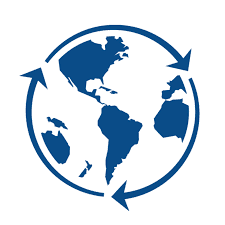
🔎
Their transparency & ratings:
The 5 Gyres Institute holds a 3-star rating from Charity Navigator and the Platinum Seal of Transparency from GuideStar.
“Leveraging the power of science, advocacy, and community to drive innovative solutions to plastic pollution.”
The 5 Gyres Institute
⚒️
What they do:
The 5 Gyres Institute works to end the plastic pollution crisis in our oceans through science, advocacy, and community engagement. For example, they conduct research studies to better understand the global impact of plastic pollution and source more sustainable plastic alternatives. Furthermore, their advocacy team campaigns for better regulation of plastic usage across the US and provides scientific data to inspire change at local, regional, and global levels. Moreover, they encourage communities to clean up local streets and coastlines through their TrashBlitz initiative.
🚀
What they’ve achieved:
Since their founding, the 5 Gyres Institute has remained committed to better understanding plastic usage to end the plastic pollution crisis. For example, in 2023, the charity recorded 23,194 plastic items through their TrashBlitz program to identify the most commonly wasted materials. In the same year, they also engaged with policymakers to implement 26 new bills to reduce plastic usage. The charity also led the #BeadFree campaign that helped pass The Microbead-Free Waters Act in 2015 and spearheaded the creation of several coalitions, including Reusable LA and the Austin Reuse Coalition.
✨
Ways to contribute:
You can donate directly to The 5 Gyres Institute through their website. You can also support the charity by joining their Plastic-Free Parks initiative or purchasing merchandise from their 5 Gyres Shop.
Coral Reef Alliance: Protecting Vital Coral Reefs
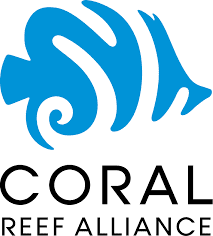
🔎
Their transparency & ratings:
The Coral Reef Alliance holds a 4-star rating from Charity Navigator and the Platinum Seal of Transparency from GuideStar.
“To save the world’s coral reefs”.
Coral Reef Alliance
⚒️
What they do:
The Coral Reef Alliance utilizes scientific research to engage local communities in restoring their native coral reefs and reducing harmful wastewater pollution. They do this by building sustainable wastewater structures, expanding marine protected areas, and working with tourism companies to raise awareness of the threats facing coral reefs. Furthermore, they scientifically monitor water quality and restore rainforest streams to capture nutrients and sediments before they reach the ocean. And, they produce evidence-based reports to help companies become more sustainable in their water usage, such as their Wastewater Do’s and Don’ts info sheet and their Recycled Water for Reefs guide.
🚀
What they’ve achieved:
Since their founding, the Coral Reef Alliance has remained dedicated to restoring nutrient balance to coral reefs. For example, thanks to the work of the charity, there has been a 95% reduction in harmful bacteria along the coastal waters of Roatan, Mexico. Furthermore, in 2020, the charity removed 20 tons of sediment from Maui’s coral reefs and trained 130 tourism operators in sustainable practices, across Mexico, Belize, and Honduras.
✨
Ways to contribute:
You can donate directly to the Coral Reef Alliance through their website. You can also honor a loved one with an In Memory Gift to help save coral reefs around the world.
Oceana: Protecting the World’s Oceans

🔎
Their transparency & ratings:
Oceana holds a 4-star rating from Charity Navigator, as well as the Gold Seal of Transparency from GuideStar.
“Dedicated to protecting and restoring the world’s oceans on a global scale.”
Oceana
⚒️
What they do:
Oceana reduces plastic pollution in our oceans by working with companies to move to refillable and reusable systems, such as the hotel industry. They do this by conducting expeditions and surveys in vulnerable marine areas to provide evidence-based targets that protect our oceans from extensive plastic pollution. They also protect the most endangered marine species by campaigning to reduce the production of unnecessary single-use plastics and by encouraging more sustainable ocean-based fish farming practices to prevent dangerous chemicals from leaking into local waterways.
🚀
What they’ve achieved:
To date, Oceana has protected nearly 4 million square miles of ocean, and has won over 300 policy victories for marine wildlife. Since 2005, they have also led more than 55 expeditions and conducted thousands of ocean surveys around the world. This information is then used to effectively campaign for the use of alternatives to plastic and reduce the use of harmful fishing gear. For example, in 2023, following campaign efforts by Oceana, Delaware became the latest state to ban food service establishments from providing polystyrene foam food containers, plastic stirrers, and sandwich picks to tackle the pollution crisis.
✨
Ways to contribute:
You can donate directly to Oceana through their website. You can also support the charity by purchasing items from their online gift store or by signing one of their numerous petitions to protect the ocean and its wildlife.
Oceanic Preservation Society: Expose the Truth. Protect the Planet.
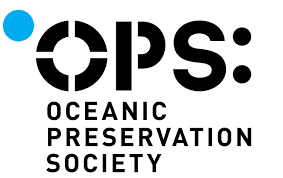
🔎
Their transparency & ratings:
The Oceanic Preservation Society holds a 4-star rating from Charity Navigator.
“By documenting humankind’s formidable impact on the environment, we inspire action and motivate change.”
Oceanic Preservation Society
⚒️
What they do:
The Oceanic Preservation Society works to protect our oceans by creating impactful films about the state of our oceans to inspire people to make a difference and by running covert operations to uncover the truth in some of the world’s most harmful industries. They also run campaigns, such as their Plastic-Free Parks initiative and Break Free From Plastics Coalition, to reduce the use of single-use plastics that often end up in our oceans. Furthermore, they run online learning courses, as well as publish teacher guides and educational videos to spread awareness about the decline of marine species and the growing threat of pollution.
🚀
What they’ve achieved:
Since their founding, the Oceanic Preservation Society has reached 5.3 billion people through their thought-provoking global projection events to inspire change and save our oceans. Furthermore, their first film, The Cove, has gained more than 50 million views to date. For example, in 2022, the charity joined other collaborators to successfully halt new oil drilling in the Gulf of Mexico, preventing further harmful chemical leakage into local waterways. In the same year, as part of the Break Free From Plastics campaign, the charity convinced the Secretary of Interior to phase out single-use plastics across the department by 2032.
✨
Ways to contribute:
You can donate directly to the Oceanic Preservation Society through their website. You can also support the charity by shopping to support or by supporting one of their campaigns.
Surfers Against Sewage: The Voice of the Ocean

🔎
Their transparency & ratings:
According to their financial report, Surfers Against Sewage spent 83% of their expenditure on charitable activities and 16.7% on fundraising.
“Campaigning for a thriving ocean, thriving people.”
Surfers Against Sewage
⚒️
What they do:
Surfers Against Sewage calls for an end to sewage pollution through their team of ocean activists. They do this by challenging the government and water companies through the production of their evidence-based End Sewage Pollution Manifesto, as well as providing the only national real-time water quality service. In addition, the charity engages the public in their mission through their Million Mile Clean event and tackles plastic pollution at the source through the Plastic-Free Communities initiative.
🚀
What they’ve achieved:
Since their inception, Surfers Against Sewage has remained committed to cleaning up the water sources surrounding the UK. For example, in 2023, through their Million Mile Clean campaign, the charity removed over 19,000 lbs of rubbish from UK coastlines through the engagement of 93,906 volunteers. In the same year, 927 communities and 5,710 businesses had signed up for their Plastic-Free Communities Pledge, whereas 3,745 schools signed up for their Plastic-Free Schools campaign. Thanks to the work of the charity, 30 million people now live in a plastic-free community.
✨
Ways to contribute:
You can donate directly to Surfers Against Sewage through their website. You can also support the charity by taking part in a Million Mile Clean event or leaving a legacy.
How Can You Select the Best Charities to Support?
The charities on the list are, we deem, the best charities that help clean up our oceans. However, you may have a particular charity you want to support. Let’s look at what you can do to ensure your contribution has the most significant impact.
- Check out the charity website. Charities that are worthy of your donations are transparent in their mission and their figures. Familiarize yourself with their history, mission, and values. Their website usually is the best place to start.
- Identify the charity’s mission. Without a goal, the charity is likely to fail. If the charity’s mission isn’t clear, it’s probably worth looking for a charity that does have a clear mission.
- Check if the charity has measurable goals. An effective charity has clear goals. You want to know your donation will help the charity reach its goals. But if it doesn’t have targets, it’s likely to fail or squander your gift. The charity should be able to account for its spending and supply evidence of the work they do.
- Assess the successes or goals the charity has achieved. You wouldn’t invest in a business if it kept missing its targets. In the same way, charities are like this too. If no one is assessing a charity’s progress in reaching its targets, the chances are they’re not making a substantial positive change.
- Check the charity’s financials and stats. Trustworthy organizations will publish financial statements and reports each year. Some might be exempt from having to do so, but they should be able to provide them to public members who are interested in donating.
- Locate sources who work with or benefit from the charity. Word of mouth and first-hand experience of a charity’s work lets you know the charity’s quality. If you’re able to do so, check out the charity for yourself or speak to someone familiar with it. This way, your donation will go to the right place.
How Can You Best Support These Charities?
After you’ve made your decision, it’s time for you to decide on how you’d like to help the charities you’ve chosen. Check how you can help – each charity runs specific programs that have unique aims. Find out what the aim of such programs is and whether they are right for you.
Here are a few ways you can help your chosen charity:
- Donate money. You can find donation pages on the website of most charities. Your donation can be a one-time payment, or you can set it to be deducted regularly at different intervals. You can mostly pay via credit card, but some charities also take PayPal or Bitcoin payments.
- Buy their official merchandise. Charities can also raise money by selling merchandise. So, you can support them by buying the mugs, shirts, caps, pens, pencils, and any other such items they may be selling. Ideally, you should buy as much as you can to share and spread the word about the charity’s activities.
- Engage in volunteer work. As you’ve seen from our descriptions above, some charities engage in a lot of local and grassroots programs. You can help by taking on and organizing the program in your local area.
- Help their fundraising efforts. You can spread the word about the charity in your workplace, school, church, etc., and hold creative fundraising drives on social media or offline within your small circles.
- Share their stories. Most charities have compelling stories that you can share with your audience to attract more people to the cause.
Final Thoughts
Now it is up to you to select the charity that resonates most with you. And whichever charity you end up choosing and contributing to, we are sure that they will immensely appreciate your support. Hopefully, the information within this article has made this selection process a bit easier for you to support charities dedicated to helping clean up our oceans—based on the causes that matter most to you.
Stay impactful,

PS: Finally, I want to leave you with a thought-provoking TED talk from Dan Pallotta, a leading philanthropic activist and fundraiser, about what is wrong with the way we think about charities – and what we can do about it:
Sources
- Condor Ferries: Marine and Ocean Pollution. Statistics & Facts 2023
- Ocean Conservancy: Home page
- Charity Navigator: Ocean Conservancy
- GuideStar: Ocean Conservancy
- Ocean Conservancy: Fighting for Trash Free Seas
- Ocean Conservancy: Meet Clean Swell
- Ocean Conservancy: Plastics and Climate
- Ocean Conservancy: Protecting the Arctic
- Ocean Conservancy: Financials
- Ocean Conservancy: 2023 Annual Report
- Ocean Conservancy: Donate
- Ocean Conservancy: Action Center
- The Ocean Cleanup: Home page
- The Ocean Cleanup: 2022 Annual Report
- The Ocean Cleanup: Cleaning Up the Garbage Patches
- The Ocean Cleanup: Dashboard
- The Ocean Cleanup: Tackling Trash in Rivers
- The Ocean Cleanup: Milestones
- The Ocean Cleanup: 2021 Annual Report
- The Ocean Cleanup: Donate
- The Ocean Cleanup: Fundraise to Clean the Oceans
- The Ocean Cleanup: Become a Citizen Scientist
- PADI AWARE Foundation: Home page
- PADI: Home page
- PADI AWARE Foundation: Who We Are
- Charity Navigator: PADI AWARE Foundation
- GuideStar: PADI AWARE Foundation
- PADI AWARE Foundation: Marine Debris
- PADI AWARE Foundation: Dive Against Debris Map
- PADI AWARE Foundation: Your Guide to Conservation Action
- PADI AWARE Foundation: People & Humanity
- PADI AWARE Foundation: Annual Report 2022
- PADI AWARE Foundation: Donate
- PADI AWARE Foundation: Become a Fundraiser
- PADI AWARE Foundation: Community Grant Program
- Surfrider Foundation: Home page
- Charity Navigator: Surfrider Foundation
- GuideStar: Surfrider Foundation
- Surfrider Foundation: Our Unique Approach
- Surfrider Foundation: Beach Cleanups
- Surfrider Foundation: Ocean Friendly Restaurants
- Surfrider Foundation: 2021 Annual Report
- Surfrider Foundation: Donate
- Surfrider Foundation: Become a Volunteer Today
- Surfrider Foundation: Events
- The 5 Gyres Institute: Home page
- Charity Navigator: The 5 Gyres Institute
- GuideStar: The 5 Gyres Institute
- The 5 Gyres Institute: Science to Solutions
- The 5 Gyres Institute: Better Alternatives
- The 5 Gyres Institute: Advocacy
- The 5 Gyres Institute: TrashBlitz
- The 5 Gyres Institute: 2023 Annual Report
- Reusable LA: Home page
- Austin Reuse Coalition: Home page
- The 5 Gyres Institute: Donate
- The 5 Gyres Institute: Plastic-Free Parks
- The 5 Gyres Institute: Shop
- Coral Reef Alliance: Home page
- Charity Navigator: Coral Reef Alliance
- GuideStar: Coral Reef Alliance
- Coral Reef Alliance: Local Engagement
- Coral Reef Alliance: Clean Water for Reefs
- Coral Reef Alliance: Sustainable Fisheries
- Coral Reef Alliance: Protect Our Coral Reefs
- Coral Reef Alliance: Recycled Water For Reefs
- Coral Reef Alliance: Donate
- Coral Reef Alliance: Other Ways to Give
- Oceana: Home page
- Oceana: About Us
- Charity Navigator: Oceana
- GuideStar: Oceana
- Oceana: Curbing Plastic Pollution at the Source
- Oceana: Plastic-Free Paradise
- Oceana: Our Campaigns
- Oceana: Ensuring Ocean-Based Fish Farming is Done Responsibly
- Oceana: Victories
- Oceana: Donate
- Oceana: Support Oceana’s Work
- Oceana: Take Action
- Oceanic Preservation Society: Home page
- Charity Navigator: Oceanic Preservation Society
- Oceanic Preservation Society: Why Films?
- Oceanic Preservation Society: Campaigns
- Oceanic Preservation Society: Plastic-Free Parks
- Break Free From Plastic: Home page
- Oceanic Preservation Society: Online Learning
- Oceanic Preservation Society: Teaching Guides
- Oceanic Preservation Society: Educational Videos
- Oceanic Preservation Society: Projections
- Oceanic Preservation Society: The Cove
- Oceanic Preservation Society: Impact Report 2022
- Oceanic Preservation Society: Donate
- Oceanic Preservation Society: Shop to Support
- Oceanic Preservation Society: Action Center
- Surfers Against Sewage: Home page
- Charity Commission for England and Wales: Surfers Against Sewage
- Surfers Against Sewage: The End Sewage Pollution Manifesto
- Surfers Against Sewage: Water Quality Report 2023
- Surfers Against Sewage: Million Mile Clean
- Surfers Against Sewage: Plastic Free Communities
- Surfers Against Sewage: Impact Report 2023
- Surfers Against Sewage: Donate
- Surfers Against Sewage: Leave a Legacy


